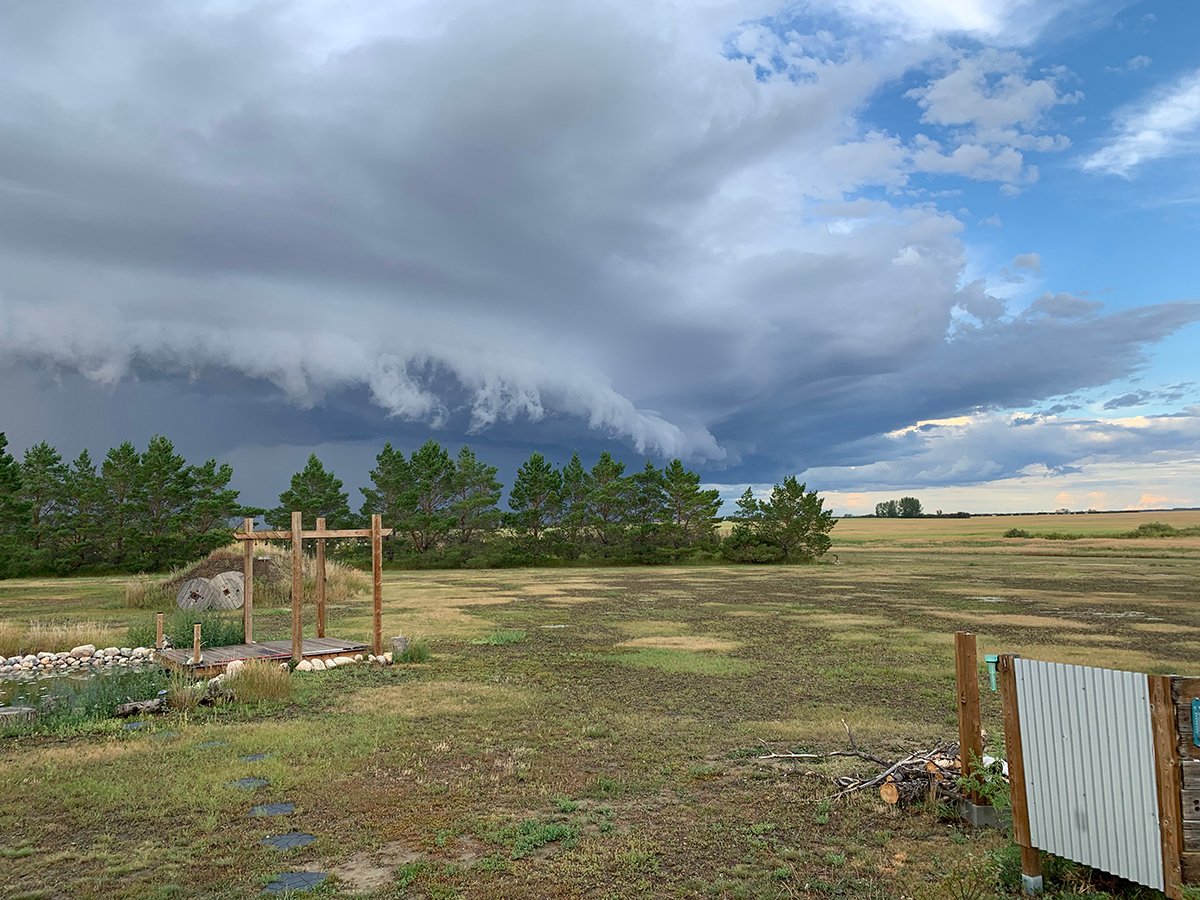Farmers across the Prairies have been turned away from elevators for delivering grain contaminated by deer excrement and now face large trucking and grain cleaning bills for crops already hovering near record low prices.
Russell Nilsson, a grower from Lloydminster, Sask., had loads of contracted feed peas rejected at the Agricore United elevator in Vermilion, Alta., last week.
“If they find any sign of deer dropping they send you home. There was no warning, it just hit everybody blindside,” he said.
Nilsson, who had no problem delivering peas the past 10 years, had one of his four loads of yellow peas, all of which had been straight cut in September and binned, rejected by the buyer.
Read Also

Storm dynamics and extreme rainfall
Besides moisture, instability and orographic lift, the next biggest factor that contributes to heavy or extreme rainfall is storm dynamics.
He can’t understand what has changed this year. Deer are plentiful in his area but they always have been.
Tod Hames, a pea grower from Marwayne, Alta., is equally befuddled by the treatment he got at the same Agricore facility.
“You pull in (to the elevator) and they walk all over the top of your truck load to see if they can find any (excreta) and if they find any, they won’t let you unload.”
Hames said it takes only one piece of poop for an entire load to be rejected, even loads destined for feed markets like his.
“I think they are being unreasonable in what they’re doing,” he said.
Agricore United spokesperson Radean Carter said the company’s zero tolerance stance reflects a Canadian Grain Commission order stating that primary elevator operators shall not receive grain containing visible deer excreta.
“The reason that we turn away these deliveries is purely because we need to protect the food chain,” she said.
Deer excrement can be a serious trade irritant. It was at the root of a $1.8 million court case between the Canadian Wheat Board and four grain companies involved in a 1997 shipment of 40,000 tonnes of barley to Japan that had to be cleaned there when deer feces were found.
Even feed peas have to be rejected because there is a risk of contaminating handling equipment that will be processing food grains, said Carter.
She said there has been a flurry of rejected shipments at AU facilities across Saskatchewan and Alberta in addition to a more serious incident in Fort St. John, B.C., where the company was forced to temporarily shut down one of its elevators.
A spokesperson for the Canadian Grain Commission failed to return calls inquiring how widespread the problem is with other grain companies.
Hames understands the need for vigilance but doesn’t comprehend why there isn’t a different set of standards for feed peas and why there has to be a zero tolerance policy. The situation has left him in the lurch.
“I’ve been shut down waiting for cleaners to become available,” he said.
While the wasted trip to Vermilion cost him an estimated 32 cents per bushel plus the cleaning bill, other producers are worse off.
“I know guys who shipped grain from a long ways away, like over 100 kilometres, by commercial truck that showed up there and then got rejected,” said Hames.
“You think (Agricore United) could owe them guys a phone call and say, ‘hey, if you’ve got any excreta in your grain you better not ship it.'”
Carter said the company had no way of knowing what condition the grain would be in when it arrived at the elevator.
“Now that we’re aware that this is a problem, we definitely will have to communicate it to our customers, particularly if there is a contract coming in,” she said.
While the deer excrement issue is causing anxiety for farmers it has been a boon for grain cleaning companies.
“It’s good news for us. We’re getting quite a bit of work here,” said Don Fadden, manager of the Vermilion Seed Cleaners Association.
The company is operating two shifts flat out, cleaning peas 16 hours a day. Customers are backed up on a long waiting list.
“We’re not set up to take the amount of grain and clean it that they’re trying to turn over to us,” said Fadden, who noted that some of the loads have been badly contaminated.
Growers in Alberta who are forced to clean their grain may receive compensation through a new Agricultural Financial Services Corp. crop insurance program.















